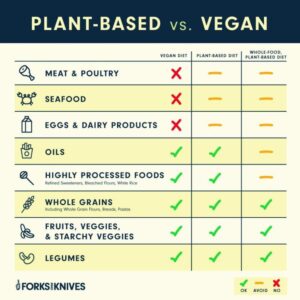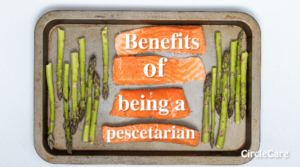Eating fish and vegetables only is a dietary approach that emphasizes the consumption of these nutrient-rich foods to promote overall health and well-being. This approach has gained popularity due to its potential health benefits, including reduced risk of chronic diseases, improved cognitive function, and enhanced mood.
In this comprehensive guide, we delve into the nutritional value of fish and vegetables, explore their health benefits, and provide practical tips for incorporating them into your daily diet.
Fish and vegetables are packed with essential nutrients that are crucial for optimal health. Fish is an excellent source of high-quality protein, omega-3 fatty acids, and vitamins D and B12. Vegetables provide a wide range of vitamins, minerals, antioxidants, and fiber.
Consuming a balanced diet that includes both fish and vegetables ensures that you are getting the full spectrum of nutrients your body needs.
Nutritional Value of Fish and Vegetables
Fish and vegetables are essential components of a healthy diet. They are packed with essential nutrients that our bodies need to function properly. Fish is an excellent source of protein, omega-3 fatty acids, and vitamins D and B12. Vegetables are a good source of fiber, vitamins, minerals, and antioxidants.
Nutrient Content of Fish and Vegetables
The following table compares the nutrient content of different types of fish and vegetables:
| Nutrient | Fish | Vegetables |
|---|---|---|
| Protein | 18-25 grams per 3 ounces | 2-5 grams per cup |
| Omega-3 fatty acids | 1-3 grams per 3 ounces | 0-1 gram per cup |
| Vitamin D | 10-20 micrograms per 3 ounces | 0-1 microgram per cup |
| Vitamin B12 | 2-6 micrograms per 3 ounces | 0-1 microgram per cup |
| Fiber | 0-1 gram per 3 ounces | 2-5 grams per cup |
| Vitamin C | 0-10 milligrams per 3 ounces | 50-100 milligrams per cup |
| Potassium | 200-400 milligrams per 3 ounces | 200-400 milligrams per cup |
| Antioxidants | Yes | Yes |
As you can see, both fish and vegetables offer a variety of essential nutrients. It is important to consume a balanced diet that includes both fish and vegetables to ensure that you are getting all of the nutrients your body needs.
Health Benefits of Eating Fish and Vegetables

Consuming fish and vegetables is a cornerstone of a healthy diet, providing a wealth of essential nutrients and protective compounds. Research has consistently shown that incorporating these foods into your meals can significantly reduce the risk of chronic diseases and promote overall well-being.
Reducing the Risk of Heart Disease
Fish, particularly fatty fish like salmon, tuna, and mackerel, are rich in omega-3 fatty acids, which have potent anti-inflammatory and heart-protective effects. Studies have demonstrated that regular fish consumption can lower blood pressure, improve blood lipid profiles, and reduce the risk of heart attacks and strokes.
Lowering the Risk of Stroke
Vegetables, especially leafy greens like spinach and kale, are packed with antioxidants and phytonutrients that have been linked to a reduced risk of stroke. These compounds help protect against oxidative stress and inflammation, both of which are major contributing factors to stroke development.
Protecting Against Cancer, Eating fish and vegetables only
Certain vegetables, such as cruciferous vegetables (e.g., broccoli, cauliflower, cabbage), contain compounds called glucosinolates. These compounds have been shown to have anti-cancer properties, particularly in relation to lung, prostate, and colorectal cancers.
Examples of Research Findings
- A large-scale study published in the journal Circulationfound that people who ate fish at least twice a week had a 15% lower risk of heart disease compared to those who ate fish less than once a month.
- A meta-analysis of over 20 studies, published in the journal Stroke, showed that people who consumed high amounts of leafy green vegetables had a 12% lower risk of stroke.
- A study published in the journal Cancer Researchfound that men who ate the most cruciferous vegetables had a 41% lower risk of prostate cancer.
How to Incorporate Fish and Vegetables into Your Diet
Consuming fish and vegetables regularly can bring numerous health benefits. Here are some practical tips to help you incorporate more fish and vegetables into your daily meals:
Plan Your Meals
Plan your meals ahead of time to ensure you include a variety of fish and vegetables throughout the week. Consider the following:
- Aim for at least two servings of fish per week, including fatty fish like salmon, tuna, and mackerel.
- Incorporate vegetables into every meal, aiming for at least five servings per day. Choose a variety of colors and types to get a wide range of nutrients.
- Cook meals at home more often to have control over ingredients and portion sizes.
Make It Easy and Enjoyable
Preparing fish and vegetables doesn’t have to be complicated or time-consuming. Here are some tips:
- Choose pre-cut vegetables or frozen vegetables for convenience.
- Use a slow cooker or pressure cooker to cook fish and vegetables with minimal effort.
- Experiment with different cooking methods like grilling, roasting, or steaming to find what you enjoy most.
Recipes and Meal Ideas
Here are some recipe ideas to get you started:
- Grilled salmon with roasted vegetables
- Vegetable stir-fry with brown rice
- Fish tacos with cabbage slaw
Challenges and Considerations
Consuming a diet rich in fish and vegetables can be challenging due to various factors, including affordability, accessibility, and environmental concerns.One challenge lies in the cost of fish and vegetables, which can be higher than other food options. This may limit the frequency of consumption, particularly for individuals or families with financial constraints.
Embark on a culinary adventure with vegetarian daily meals that cater to your health-conscious lifestyle. These delectable dishes not only nourish your body but also tantalize your taste buds, proving that plant-based eating can be both satisfying and indulgent.
Additionally, access to fresh and affordable produce can be limited in certain areas, such as rural or underserved communities.Environmental concerns also arise when considering fish consumption. Overfishing and unsustainable fishing practices can lead to the depletion of fish populations and damage marine ecosystems.
To address this, it’s important to choose fish from sustainable sources and support responsible fishing practices.
Conclusion
Consuming a diet rich in fish and vegetables is essential for maintaining optimal health and well-being. The nutrients found in these foods contribute to a wide range of health benefits, including reducing the risk of chronic diseases, improving cognitive function, and promoting a healthy weight.
By incorporating more fish and vegetables into our diets, we can significantly improve our overall health and quality of life.
Making dietary changes can be challenging, but it is important to remember that even small changes can have a significant impact. Start by adding one or two servings of fish or vegetables to your meals each day. Gradually increase your intake over time until you are consuming the recommended amounts.
With a little effort, you can reap the many benefits of a diet rich in fish and vegetables.
Conclusive Thoughts
Incorporating fish and vegetables into your diet is a smart investment in your health. By following the tips Artikeld in this guide, you can reap the numerous benefits of these nutrient-rich foods. Whether you are looking to improve your heart health, boost your cognitive function, or simply enhance your overall well-being, eating fish and vegetables only can be a transformative dietary approach.
General Inquiries: Eating Fish And Vegetables Only
Is it healthy to eat only fish and vegetables?
Yes, eating fish and vegetables only can be a healthy dietary approach, provided that you consume a variety of both to ensure you are getting all the nutrients your body needs.
What are the benefits of eating fish and vegetables only?
Eating fish and vegetables only can provide numerous health benefits, including reduced risk of chronic diseases, improved cognitive function, enhanced mood, and weight management.
How can I incorporate more fish and vegetables into my diet?
There are many ways to incorporate more fish and vegetables into your diet, such as adding them to salads, stir-fries, soups, and sandwiches. You can also grill, bake, or steam fish and vegetables for a healthy and flavorful meal.




Leave a Comment